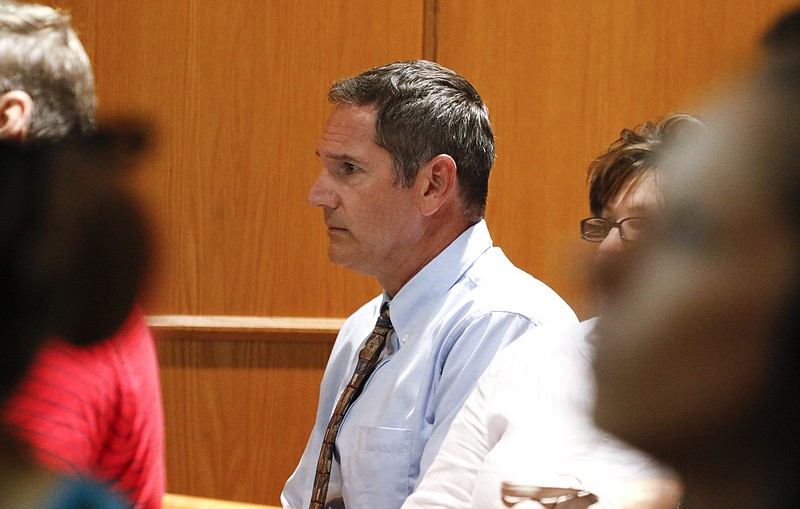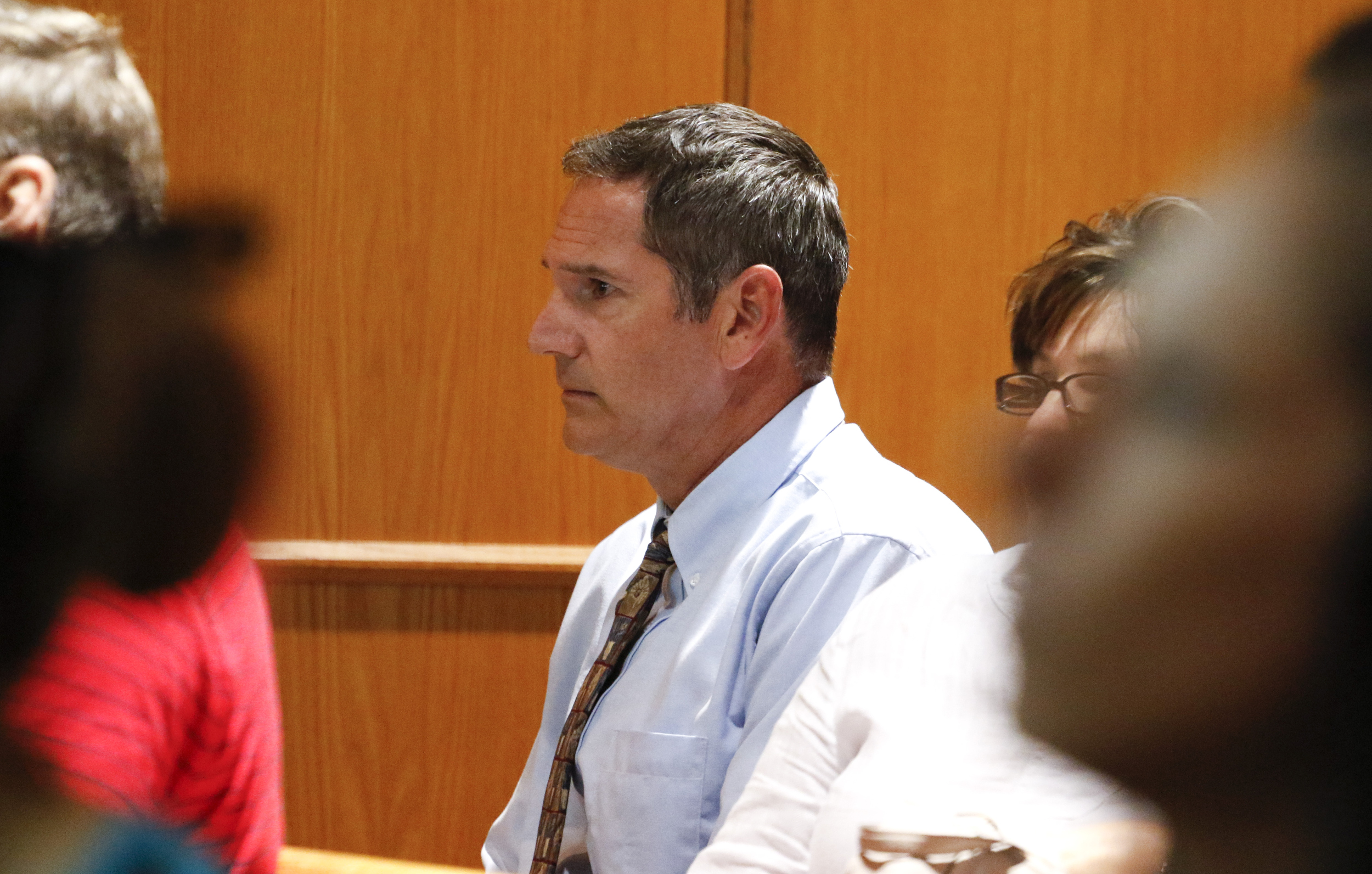After the judge dismissed his aggravated statutory rape charge, Charles David Pugh walked out of the courtroom and out of the building without looking back once.
Pugh was accused of molesting a 16-year-old boy while he was an employee at the Tennessee Valley Railroad Museum in 2010.
On Monday, Hamilton County Sessions Judge Clarence Shattuck dismissed the case after determining that prosecutors did not prove the incident happened within the state's four-year statute of limitations.
"There is no question in this court's mind this event occurred," Shattuck said. "But because of the statute of limitations in the state of Tennessee for this event, it is not clear to this court that it happened after Oct. 31."
Documents show Pugh is suspected of raping as many as eight boys over the course of several years while working at the museum, but in at least three of the cases, the four-year statute of limitations had expired and Pugh could not be prosecuted.
So he was charged only with one count: aggravated statutory rape of a 16-year-old who said Pugh performed oral sex on him in late 2010.
The alleged victim, now 21, initially told Hamilton County detectives that the last time he had sexual contact with Pugh was between Nov. 1 and Dec. 23, 2010.
Detective Ed Merritt filed the charge against Pugh on Oct. 31, 2014 - just within the state's allowed four-year window for prosecuting.
But in a preliminary hearing on Monday, the man testified that the last incident happened between October and November 2010. When pressed by Assistant District Attorney Leslie Longshore, the man said his memory of exactly when the last contact happened was foggy, although he remembered that it was after school had started, as the weather was turning cooler.
Any incident that happened in October 2010 would fall outside of the statute of limitations and could not be prosecuted. Any incident in November 2010 could be prosecuted.
Pugh's attorney, Lee Davis, pointed out that the man did not keep a diary that could have pinpointed the date and that the detective did not record or make notes of the phone call in which the man offered the November-to-December 2010 timeframe.
"There is no proof this is more likely than not November than October, besides the investigator saying so," Davis told the judge.
Shattuck agreed, and ruled that the state did not prove the incident happened in November 2010.
He then dismissed the case and Pugh immediately walked away with Davis.
Left behind in the courtroom, two other men who say Pugh abused them when they were teenagers stayed in their seats. They'd come to support the 21-year-old, since their own allegations against Pugh were well beyond the statute of limitations. The Times Free Press does not identify victims of sexual assault.
Both kept quiet about the alleged abuse for years until June 2014, when eight men realized they'd all had similar encounters with Pugh while they were volunteering or working at the railroad museum. Officials at the museum did not return a request for comment on Monday.
When some of the men contacted the authorities in 2014, they said they did it to try to stop future boys from suffering abuse.
"I feel guilty because I feel if I had come forward sooner this would have been a different story," one man said after the hearing Monday. "We're talking about days."
He said he was frustrated by state law, which sets the statute of limitations at four years.
"Something has got to be done about the statute," he said. "You expect victims to come forward days after something like this happened? This took years. It took years before anyone could to talk to anybody."
But Davis said the statute of limitations is designed to protect the accused from memory made foggy by time.
"The statute of limitations exits to ensure fairness to all defendants by preventing undue delay in bringing prosecution on claims, and by preserving evidence so facts are not obscured by the lapse of time or defective memory or unavailability of a witness," he said.
Despite the lack of charges, both men felt they'd stopped Pugh.
They said the Tennessee Valley Railroad Museum put new training in place for employees, training on how to recognize sexual abuse.
And perhaps future employers will pull up the information on the charge and refuse to hire Pugh, they said. Perhaps any other victims who could still press charges will do so.
And if this is the end, perhaps it is enough.
"He'll never use the love of trains as a way to victimize someone again," the man said.
Contact staff reporter Shelly Bradbury at 423-757-6525 or sbradbury@timesfreepress.com with tips or story ideas.


